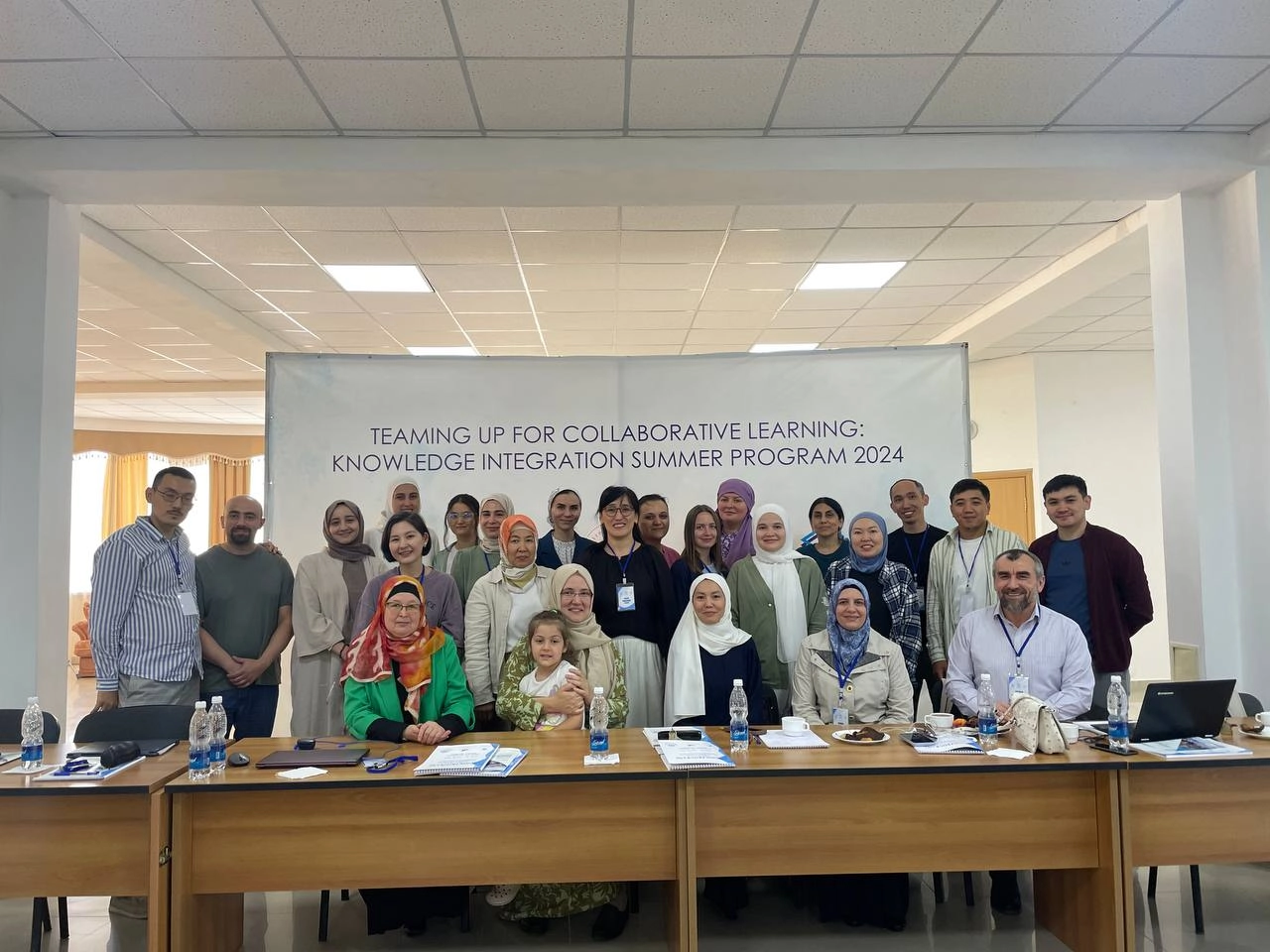From June 30 to July 8, 2024, the "Knowledge Integration" Summer School, organized by the Institute of Knowledge Integration (Georgia) in partnership with the International Institute of Islamic Thought (USA) and the International Institute for Development (Kyrgyzstan), took place at the picturesque Meridian Resort on the shores of Lake Issyk-Kul, Kyrgyzstan. This unique educational event, titled "Joining Forces for Collaborative Learning," brought together 21 students from Azerbaijan, Georgia, Kyrgyzstan, Kazakhstan, Russia, Turkey, and Uzbekistan, creating a platform for intercultural exchange and in-depth study of Islamic sciences under the guidance of leading global experts.
The program covered a wide range of topics, from Islamic history and civilization to contemporary Muslim thought and philosophy. The lectures contributed significantly to the intellectual and academic growth of the participants, helping them to expand their knowledge and critical understanding of various aspects of Islamic culture and religion.
The 2024 Summer School was highly praised for its excellent organization, depth of discussions, and the high qualifications of the lecturers. Participants appreciated the value of the multidisciplinary approach and the diversity of opinions that enriched their understanding of the subject.
A total of 21 students from seven countries — Azerbaijan, Georgia, Kyrgyzstan, Kazakhstan, Russia, Turkey, and Uzbekistan — took part in the program. Such a diverse group of participants facilitated active exchanges of ideas and helped develop critical thinking skills, intercultural communication, and an understanding of Islamic sciences in a global context.
The lectures were delivered by renowned specialists from the Institute of Knowledge Integration and partner universities, ensuring a high level of teaching and a wide variety of topics.
– Prof. Dr. Elmira Akhmetova (IKI Academy, Director of Research)
Topics: Islamic Concept of History and the Past, Deriving the Main Principles of Islamic Civilization, Applicability of Methodology of Integration of Knowledge in Central Eurasian context, How to deal with Muslim historical sources?
– Asst. Prof. Dr. Bukuri Zejno (IKI Academy, Director of Academic Affairs)
Topics: The Role of the Human Being as the Khalifah of Allah: A Fitrah perspective, Fostering Higher Order Thinking Skills in Education, Hands-on Application of Skills and Techniques for Problem-solving and Decision-making, Qur’anic and Prophetic Methods of Teaching and Learning.
– Assoc. Prof. Dr. Fatmir Shehu (IKI Academy, IIUM)
Topics: Tazkiyyah Al-Nafs (Purification of the self): An Exegetical Approach, Understanding Al-Faruqi’s views on Disengagement Method and Inter-religious Dialogue, Exploring Contemporary Exegetical Methods: Analysis of Selected Tafsir Texts, Effective Leadership skills: Analysis of Selected Examples from Prophetic Leadership.
– Dr. Ildus Rafikov (IKI Academy, Vice President, Maqasid Institute)
Topics: Limitations in Contemporary Islamic Thought, Understanding the Knowledge Integration Approach, Constructing the Personal Vision of the Qur’anic Worldview, AI Tools for Modern Islamic Scholarship.
– Asst. Prof. Dr. Ravza Altuntaş (Marmara University, Turkiye)
Topics: Islamic Tradition and Political Philosophy, Islam and Modernity, Main Trends in Contemporary Muslim Thought, Main Trends in Contemporary Muslim Thought, Pluralist Secularism and Islam.
– Assoc. Prof. Dr. Almaz Ibraev (Vice Rector, Kyrgyzstan Manas University)
Topics: The Concept of Success in Islam and its Fundamental principles, Competitiveness as an Essential Feature of Every Muslim.
The 2024 "Knowledge Integration" Summer School was an important step in strengthening academic and cultural cooperation among young scholars and students of Islamic sciences. It provided a unique opportunity for deep engagement with the topics studied, the development of critical thinking skills, and the strengthening of networks between various educational institutions.
The school laid a solid foundation for future educational programs and activities aimed at integrating knowledge and developing the academic community in the Islamic world. The organizers expressed hope that such initiatives would be continued and expanded in the future, attracting even more participants from different countries.







